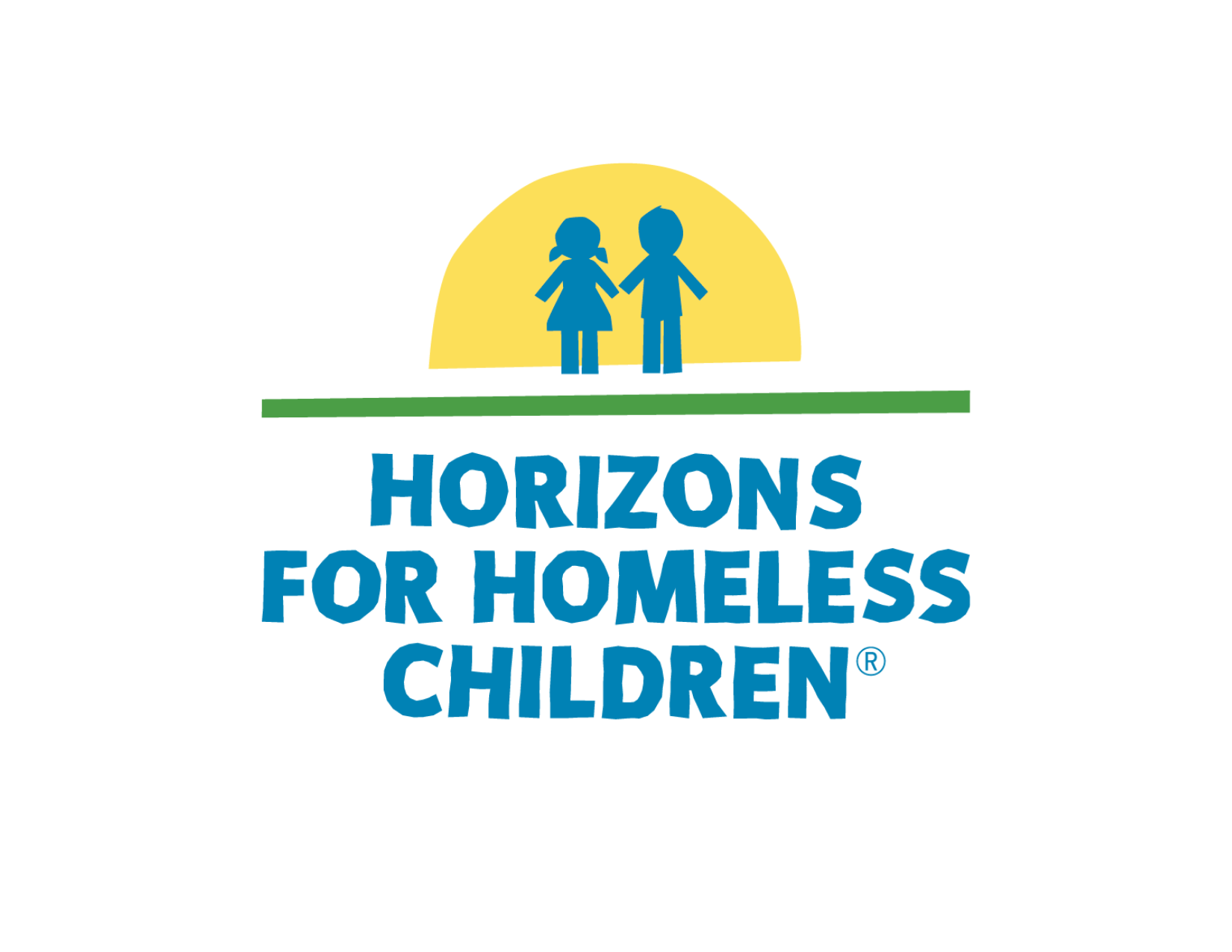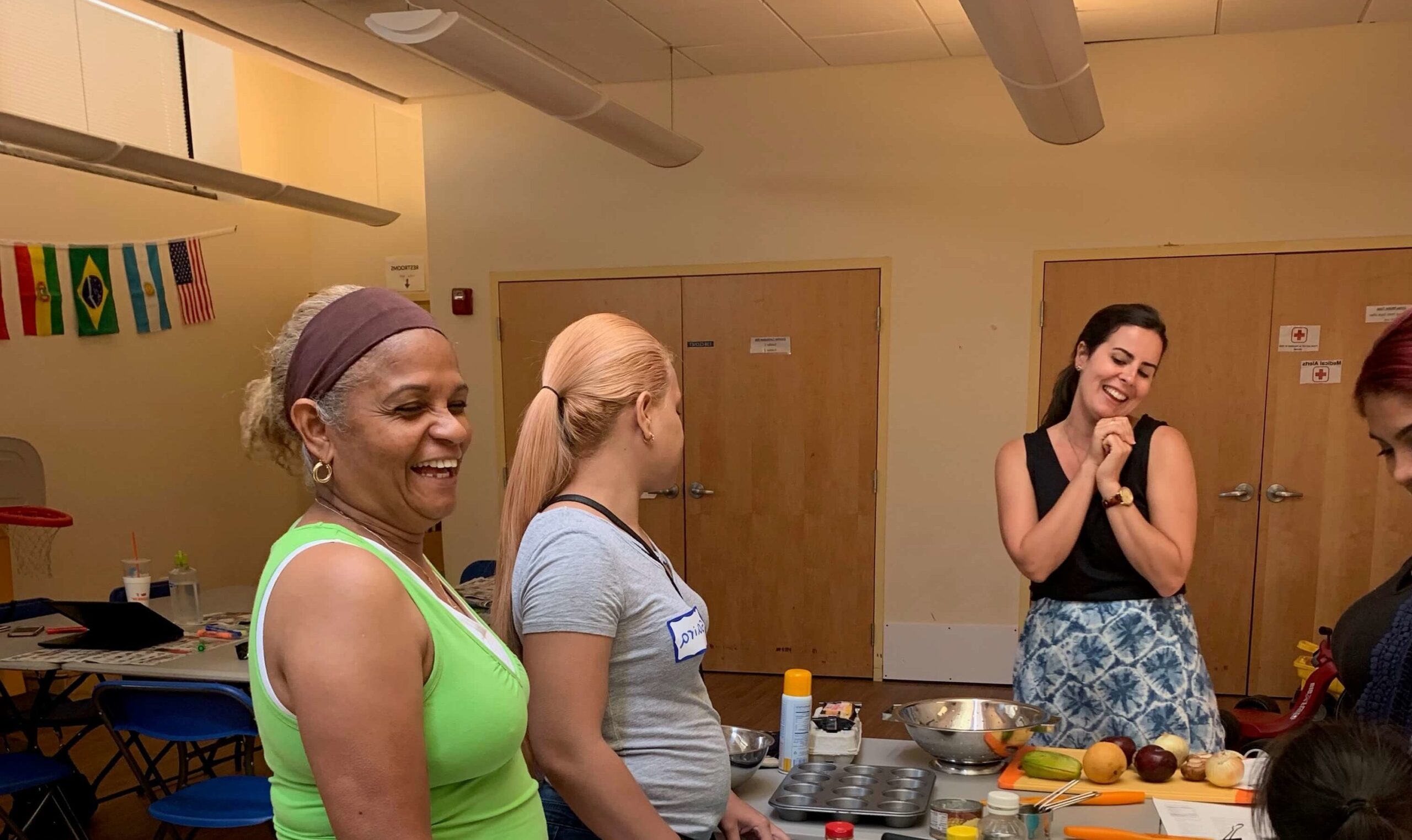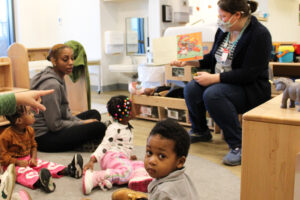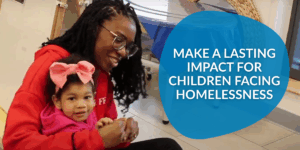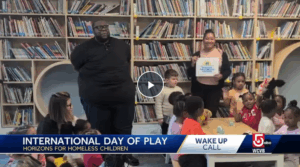Horizons Hosts Health Conscious Cooking Classes
Although eating a well-balanced and nutritious diet is important throughout the course of our lives, it is especially critical in early childhood. On average, preschoolers between the ages of 2 and 5 grow between 6 to 9 inches and gain between 12 to 15 pounds. Significant brain development occurs as well. Instilling healthy eating habits and providing good nutritional choices is extremely important to ensure normal development.
But finding affordable options for healthy meals can be challenging for families experiencing homelessness. A lack of access to healthy food, high price of produce relative to shelf stable food, and lack of access to basic food preparation areas can combine to make it difficult to get nutritious meals on the table. In an effort to combat these obstacles, Horizons teamed up with Cooking Matters. Cooking Matters, an organization within the No Kid Hungry campaign through the national nonprofit, Share our Strength, is a program dedicated to educating parents and caregivers with limited food budgets to shop for and cook healthy meals using hands-on cooking classes in settings that are convenient and accessible.
“All parents want to do best by their children, but not all parents know the foods to prepare for their children that will deliver the best nourishment for healthy physical and psychological development,’’ said Kate Adams, Horizons’ Manager of Enrollment, Funding and Compliance, who initiated the joint venture. “Everyone is on the go, and sometimes the meals we provide to young children out of convenience are highly processed and missing key food groups.”
Cooking Matters’ classes have a large focus on nutrition education. At the beginning of each class a dietician explains the nutritional value of the meal the class is about to prepare. Throughout the 6 week course the class aims to teach participants how to properly read and understand food labels, learn creative ways to incorporate all major food groups into meals, and maximize their grocery budget. Recipes shared use culturally inclusive ingredients. Participants also learn cooking and baking techniques from trained professionals.
“I grew up in an unhealthy household and only learned to cook in an unhealthy way. I didn’t want that for my family, I want my kids to grow up loving foods that are good for them,” said Francesca, a mother of three who attends the class at Horizons. “I wanted to instill a healthy mindset in them now so it will benefit them in the long run.”
Recipes include pineapple carrot muffins with whole wheat flour, black bean and vegetable quesadillas and frittatas filled with vegetables. As an added bonus, after each class participants are given a bag of ingredients and cooking utensils they can use to recreate the meal for their families at home, which may be the kitchen at their shelter.
At Horizons, the bilingual class flips between Spanish and English, and instructors make sure to mention that all the ingredients used in the upcoming recipe can be purchased using The Supplemental Nutrition Assistance Program, or SNAP dollars. SNAP is a federal program that provides nutrition benefits to low-income individuals and families and can be used at stores to purchase food.
“A central theme of the course was that our children learn so much by the behavior we model. It’s important to slow down and be present as much as possible during meal time and show them the healthy foods that we ourselves are eating and enjoying,” added Kate.
Providing this service to parents is another layer of the comprehensive support Horizons strives to give its parents. When setting goals with family advocates in Horizons’ Family Partnership Program, health and wellness goals are often included.
This post was written by Rachel San Giacomo, a regular contributor to Horizons’ blog.
.
